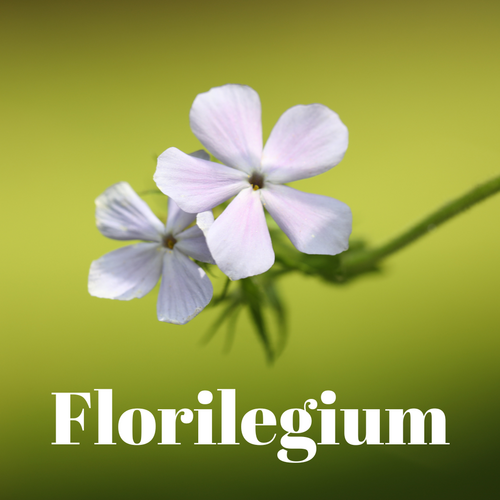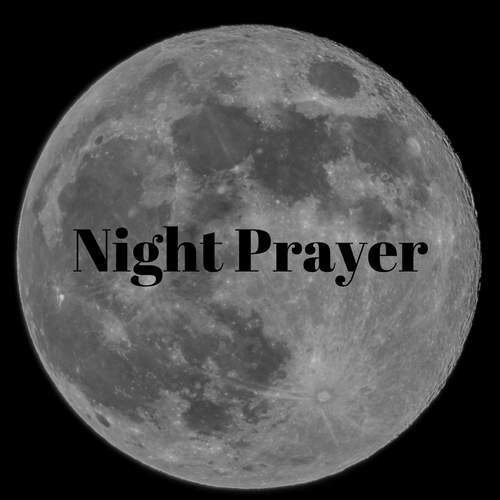

Daily Primer — August 21, Boone - North Carolina
Each day you will be given:
A Florilegium entry
A Daily Prayer
and a Night Prayer.
A Florilegium entry
A Daily Prayer
and a Night Prayer.

INSCAPE is a concept that comes from the poet Gerard Manley Hopkins. It refers to the unified complex of characteristics that makes a thing unique in its identity.
Nature and the holiness of nature is a primary theme in Hopkins’ poetry —Merton was drawn to this and it became a central part of his theology.
The forms and individual characters of living and growing things, of inanimate beings, of animals and flowers and all nature, constitute their holiness in the sight of God.
Their inscape is their sanctity. It is the imprint of His wisdom and His reality in them.
This leaf has its own texture and its own pattern of veins and its own holy shape…He is alone in his own character; nothing else in the world ever did or ever will imitate God in quite the same way. That is his sanctity.
Inscape is the individual, inner structure of a living being which results from the history of how this being developed.
The trademark of God.
A sign of God’s love.
The expression of God’s creative wisdom.
Thomas Merton — On Contemplation:
† Learn to feel ourselves to be God’s handiwork.
† Meditate on life so that we become aware that at every moment God is molding us, is acting in our life.
† How are you going to develop this experience? You have to believe. Constantly making acts of faith that God’s will is molding my life and I want to surrender to this.
† Happiness is not only accepting what I’ve got but rejoicing in the fact that this is what God has made for me.
“I went to the woods because I wished to live deliberately, to front only the essential facts of life, and see if I could not learn what it had to teach and not, when I came to die, to discover that I had not lived.”
Henry David Thoreau, Walden
Nature and the holiness of nature is a primary theme in Hopkins’ poetry —Merton was drawn to this and it became a central part of his theology.
The forms and individual characters of living and growing things, of inanimate beings, of animals and flowers and all nature, constitute their holiness in the sight of God.
Their inscape is their sanctity. It is the imprint of His wisdom and His reality in them.
This leaf has its own texture and its own pattern of veins and its own holy shape…He is alone in his own character; nothing else in the world ever did or ever will imitate God in quite the same way. That is his sanctity.
Inscape is the individual, inner structure of a living being which results from the history of how this being developed.
The trademark of God.
A sign of God’s love.
The expression of God’s creative wisdom.
Thomas Merton — On Contemplation:
† Learn to feel ourselves to be God’s handiwork.
† Meditate on life so that we become aware that at every moment God is molding us, is acting in our life.
† How are you going to develop this experience? You have to believe. Constantly making acts of faith that God’s will is molding my life and I want to surrender to this.
† Happiness is not only accepting what I’ve got but rejoicing in the fact that this is what God has made for me.
“I went to the woods because I wished to live deliberately, to front only the essential facts of life, and see if I could not learn what it had to teach and not, when I came to die, to discover that I had not lived.”
Henry David Thoreau, Walden
Thomas Merton, When the Trees Say Nothing pp.49-50
Thomas Merton’s journal entry dated December 6, 1969 - emphasis is Merton’s.
Thomas Merton’s journal entry dated December 6, 1969 - emphasis is Merton’s.
Florilegium is the Medieval Latin word for bouquet, or more literally flowers (flos, flor-) which are gathered (legere). The word florilegium was used to refer to a compilation of writings, often religious or philosophical. These florilegium are literary flowers—beautiful words/prayers/thoughts I have gathered. During my sabbatical they will give me something to ponder each day. — PHL.

In the midst of all the pushing and shoving
In the midst of all the pushing and shoving
among us,
in the world and in the church,
propelled by anxiety and
acted as brutality,
You have planted yourself in all your fidelity.
You have placed yourself among us
in steadfastness and abiding care
present in the day,
alert in the night,
making us all safe and noticed and cared for.
So evidence your fidelity as to curb our anxiety,
as to restrain our brutality,
as to overcome our alienation.
By your fidelity, renew us,
renew church,
renew city, renew world.
Give us the safety to love you fully,
to love neighbor well,
in glad obedience. Amen.
In the midst of all the pushing and shoving
among us,
in the world and in the church,
propelled by anxiety and
acted as brutality,
You have planted yourself in all your fidelity.
You have placed yourself among us
in steadfastness and abiding care
present in the day,
alert in the night,
making us all safe and noticed and cared for.
So evidence your fidelity as to curb our anxiety,
as to restrain our brutality,
as to overcome our alienation.
By your fidelity, renew us,
renew church,
renew city, renew world.
Give us the safety to love you fully,
to love neighbor well,
in glad obedience. Amen.
Awed to Heaven, Rooted in Earth: Prayers of Walter Brueggemann by Walter Brueggemann, On reading 2 Samuel 7/Mary. 4, 1999.

Have mercy upon us, God the Father Almighty
God of hosts
High God,
Lord of the world,
Ineffable God,
Creator of the elements,
Merciful God,
Wondrous God,
Dreadful God,
God of earth,
God of fire,
God of the excellent waters,
God of the tempestuous and rushing wind,
God of the waves and the bottomless ocean,
God of the constellations and bright stars,
God of day and night,
God of heaven, have mercy upon us. Amen.
God of hosts
High God,
Lord of the world,
Ineffable God,
Creator of the elements,
Merciful God,
Wondrous God,
Dreadful God,
God of earth,
God of fire,
God of the excellent waters,
God of the tempestuous and rushing wind,
God of the waves and the bottomless ocean,
God of the constellations and bright stars,
God of day and night,
God of heaven, have mercy upon us. Amen.
I have adapted this from a litany of Mugron, Abbot of Iona & Durrow from 940-980 CE. - PHL.
